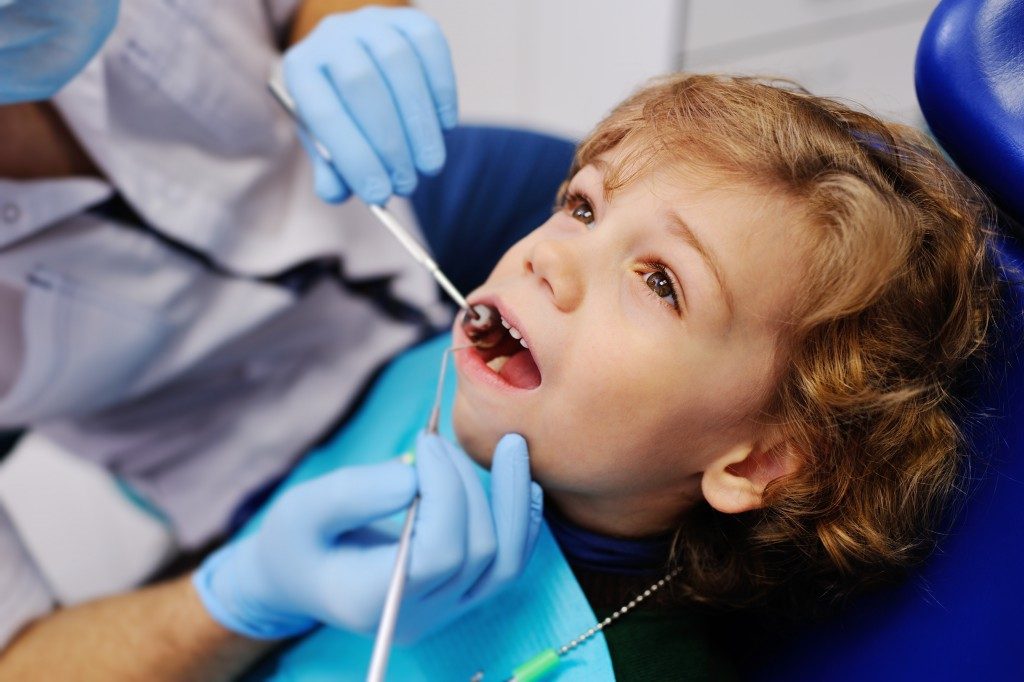For many children, oral hygiene can be a sensitive issue – whether you live in one of Indiana’s big cities or a more suburban area like Kokomo, you know that kids can get teased no end about having bad teeth or a crooked smile. And while no parent will hesitate to fix serious conditions or injuries requiring maxillofacial surgery, a lot of early childhood dental problems go unattended which can easily lead to significant issues and expenses later on – here are some of the most common ones.
Tooth decay
Since we all know that kids are going to lose their milk teeth eventually, it’s not unusual for some parents to assume that early signs of tooth decay are nothing to be worried about. However, not addressing the root cause of tooth decay can create alignment issues as the baby teeth fall out earlier than normal, and will continue to put their permanent teeth at similar risk.
Childhood tooth decay, or caries, occurs due to the presence of high levels of certain bacteria in the mouth. These bacteria thrive under conditions such as exposure to a diet rich in sugar and starch, or when drinking water isn’t properly fluoridated. You may know of some parents who manage to put their babies to sleep with a sugary treat; this is one example of how kids might develop oral conditions that lead to early tooth decay. Wiping teeth and gums clean after feeding, avoiding sugary drinks, and checking with the dentist to ensure that water has a sufficient fluoride level will help avoid childhood caries and its ensuing complications.
Unhealthy oral habits
Babies instinctively latch on to certain objects and try to suck on them; thumbs, fingers, and pacifiers are among their favorite targets. The sucking reflex is a normal and spontaneous behavior which initially develops to help babies nurse, and later on continues to provide them with a sense of security and emotional comfort. Similarly, tongue thrusting develops to help with feeding and swallowing. Both of these behaviors are expected to decrease and eventually disappear with age.
If sucking or thrusting behaviors continue beyond a certain period – up to around 4 years for sucking, 4-6 months for thrusting – there could be an increased risk of the child’s teeth being pushed out of alignment. This can lead to an overbite or speech difficulties. Generally, children can be trained to break these habits with positive reinforcement. When the behavior is linked to an emotional response, understanding the cause can help to ease their need for security. In rare cases, consulting with a dentist or speech therapist may be the best way to intervene and save the alignment of their permanent teeth.
Improper brushing and flossing
Most children are taught from an early age that regularly brushing and flossing their teeth is important. And after parents have successfully trained their kids how to do it themselves, there’s usually no need for further inspection. But if a child has been brushing or flossing with improper technique – perhaps too vigorously, or with insufficient strength – over time, this could become a habit which leads to gingivitis. This is a condition of swollen, sore, or bleeding gums caused by a bacterial infection. Any warning signs of possible gum disease should be easily detected on the next dental appointment and the right treatment prescribed – and of course, reinforcement of proper techniques is essential to prevent the same issue from happening again.
Good oral health begins early in childhood, and addressing the root causes by forming good habits will prevent a lifetime’s worth of dental problems.

